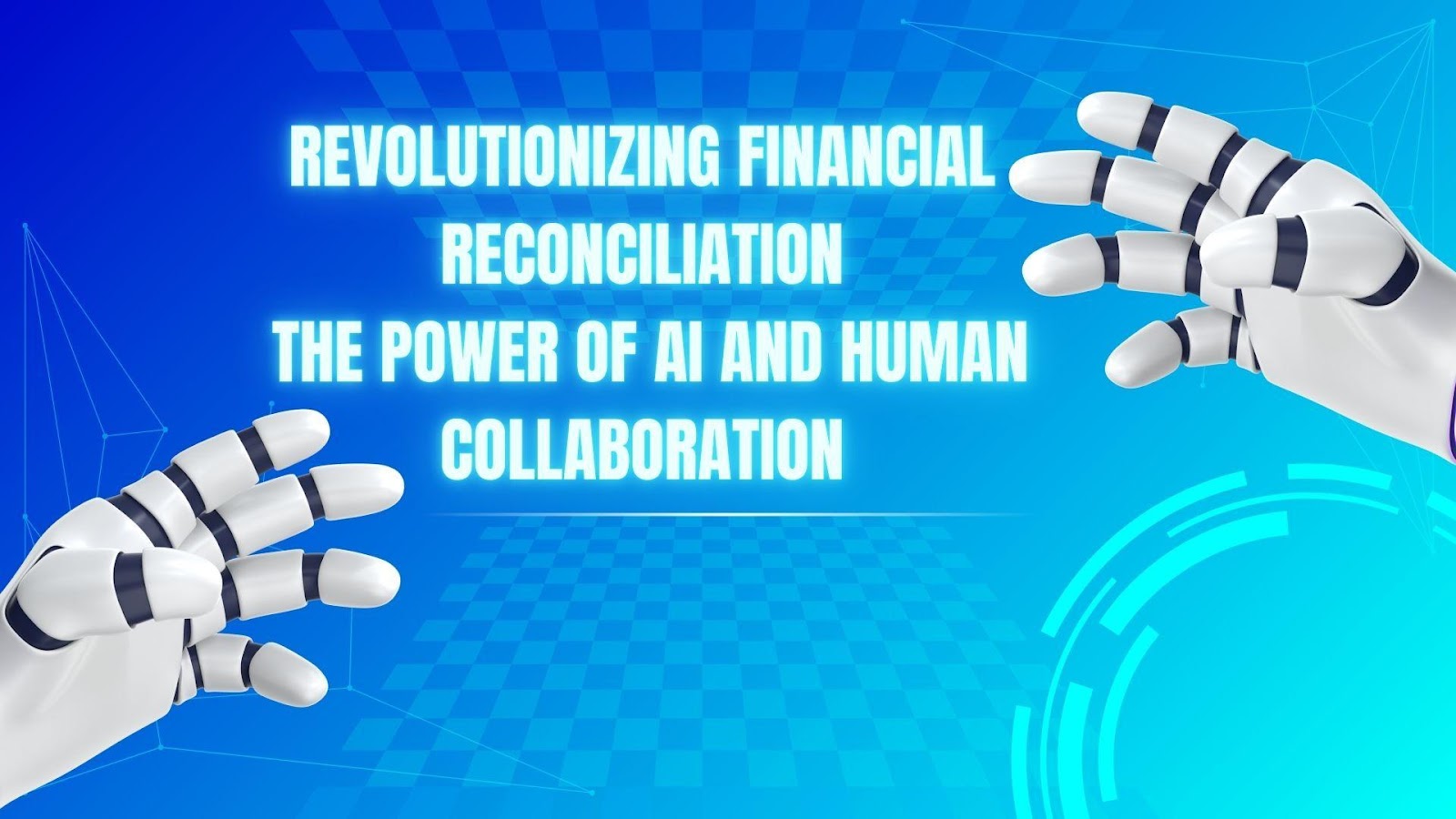Share Share Share Share Email The New Era of Financial Reconciliation, a critical aspect of financial accuracy and compliance, has undergone a major transformation with the integration of artificial intelligence . Naveen Kumar Dodde Gowda, delves into how AI-powered systems enhance reconciliation processes while preserving the indispensable role of human expertise. His work highlights the seamless synergy between machine intelligence and human oversight, paving the way for a more efficient and reliable financial landscape.
Bridging the Gap: AI in Financial Reconciliation The growing complexity of financial transactions has made traditional reconciliation methods inefficient. AI-driven reconciliation systems automate vast amounts of financial data, drastically reducing manual errors and improving efficiency. AI algorithms can process thousands of transactions per minute, identifying discrepancies with remarkable accuracy.

By implementing machine learning and pattern recognition techniques, financial institutions have achieved faster, more precise reconciliations with reduced operational costs. Pattern Recognition and Anomaly Detection One of AI’s most impactful contributions to financial reconciliation is its ability to recognize patterns and detect anomalies in transactions. Advanced machine learning models analyze multiple data points simultaneously, swiftly identifying irregularities that could indicate errors or fraud.
The implementation of AI has resulted in a significant decrease in false positives and an accelerated anomaly detection process, ensuring that financial reports remain accurate and trustworthy. Automated Data Processing: A Paradigm Shift AI has redefined data processing by automating tedious reconciliation tasks. Automated categorization of financial transactions, validation of data, and real-time monitoring contribute to greater accuracy.
AI-driven reconciliation systems standardize data across multiple platforms, reducing the need for manual intervention. Financial institutions utilizing AI have reported a dramatic reduction in reporting errors and reconciliation cycle times. These technological advances revolutionize operational efficiency while enhancing financial transparency and compliance adherence.
Human Expertise: The Cornerstone of AI Integration Despite AI’s advancements, human expertise remains a crucial component of financial reconciliation. While AI excels at processing structured data, human intervention is essential for handling complex financial scenarios. Professionals provide strategic oversight, interpret ambiguous transactions, and make informed decisions where AI alone falls short.
Financial institutions that integrate human oversight with AI capabilities have seen improved accuracy and efficiency in exception handling. Enhancing Exception Handling with Human-AI Collaboration Exception handling is a critical aspect of reconciliation, requiring human judgment to resolve discrepancies that AI cannot fully interpret. AI assists by flagging anomalies and providing preliminary analysis, but human professionals analyze the context and determine the appropriate course of action.
This collaboration has led to improved resolution times and more effective handling of non-standard financial cases. The Strategic Implementation of AI in Financial Systems Deploying AI-powered reconciliation systems requires strategic planning. Financial institutions must ensure seamless integration with existing financial platforms, robust data security measures, and scalable infrastructure.
Organizations that strategically implement AI achieve significant operational efficiencies while maintaining compliance with regulatory requirements. A phased approach to AI adoption, coupled with comprehensive training for financial professionals, enhances user adoption and maximizes benefits. The Future of Financial Reconciliation The integration of AI into financial reconciliation is not just a technological upgrade—it is a strategic shift toward smarter financial management.
Organizations that balance AI automation with human oversight gain a competitive edge, optimizing accuracy, efficiency, and risk management. As AI technology continues to evolve, its collaboration with human expertise will define the next generation of financial reconciliation, ensuring reliability and adaptability in an increasingly complex financial world. Moreover, this AI-human partnership creates a robust framework for detecting sophisticated fraud patterns while streamlining regulatory compliance.
Financial institutions implementing these hybrid systems report significant reductions in reconciliation time and error rates, allowing finance professionals to focus on strategic analysis rather than manual data matching. The resulting insights drive better decision-making and create sustainable competitive advantages in markets where precision and speed are increasingly critical success factors. In conclusion, Naveen Kumar Dodde Gowda’s , underscores the transformative impact of AI-human collaboration in financial reconciliation.
While AI revolutionizes transactional accuracy and efficiency, human oversight remains indispensable for strategic decision-making and handling exceptions. As financial institutions continue to embrace AI-driven solutions, the symbiosis between artificial intelligence and human expertise will shape the future of financial reconciliation, making it more accurate, efficient, and resilient. Related Items: AI , Human Collaboration , Naveen Kumar Dodde Gowda Share Share Share Share Email Recommended for you Bridging AI Efficiency and Environmental Impact: A Path to Sustainable Innovation Bridging the Future: Quantum Computing and AI-Driven Integration in Enterprise Architecture Optimizing AI-Driven Decisions: A Comparative Look at Uplift Modeling and Reinforcement Learning Comments.
Technology

Revolutionizing Financial Reconciliation: The Power of AI and Human Collaboration

The New Era of Financial Reconciliation, a critical aspect of financial accuracy and compliance, has undergone a major transformation with the integration of artificial intelligence. Naveen Kumar Dodde Gowda, delves into how AI-powered systems enhance reconciliation processes while preserving the indispensable role of human expertise. His work highlights the seamless synergy between machine intelligence and [...]The post Revolutionizing Financial Reconciliation: The Power of AI and Human Collaboration appeared first on TechBullion.















